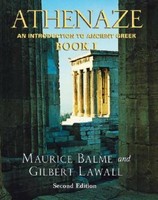About
All feedback (363)
- hbinn1 (3926)- Feedback left by buyer.Past monthVerified purchaseSmooth transaction
- *****- Feedback left by buyer.Past 6 monthsVerified purchaseGood buyer, prompt payment, valued customer, highly recommended.
- beauty-accessories (9394)- Feedback left by buyer.Past 6 monthsVerified purchaseGood buyer, prompt payment, valued customer, highly recommended.
- m1375545 (1435)- Feedback left by buyer.Past 6 monthsVerified purchaseQuick response and fast payment. Perfect! THANKS!!
- *****- Feedback left by buyer.Past 6 monthsVerified purchaseGood buyer, prompt payment, valued customer, highly recommended.
- mr-medical (288046)- Feedback left by buyer.Past yearVerified purchaseThank you for an easy, pleasant transaction. Excellent buyer. A++++++.
Reviews (2)

Feb 07, 2018
Perfect if you use ear muffs/hearing protection!
The temples are thin and flexible, so they don't obstruct ear muffs. Glasses with thicker temples can break the ear muff seal, rendering them useless. Additionally, the lenses are clear and lightweight. I wish I owned them five years ago. Buy them!

Nov 02, 2019
Fantstic Introduction!
This is a first rate introduction to Attic Greek (the Greek of classical Athens). The authors take an inductive approach, meaning that instead of presenting dozens of charts on word formations at the beginning, the authors have students reading simple Greek prose as early as chapter 1. New grammar is introduced incrementally into the reading samples as you work through the book, and new vocabulary is listed at the beginning of each chapter. This inductive approach aligns better with the way we naturally learn language. Word charts and a glossary are placed at the back for reference. (Cambridge University takes this same approach in their Latin Course textbooks.)
Although a reviewer complains that this book doesn't distinguish between Homeric, Attic, and Koine Greek, the complain is misleading. The book teaches only Attic Greek. Occasionally, at the end of some chapters, the book quotes a brief line from a pre-Socratic philosopher or from the New Testament (Koine Greek) to give students samples of authentic Greek from different times and authors. But these samples are just that, samples. Since the focus of each chapter is Attic Greek, no one I know who has used this book has been confused regarding various ancient Greek dialects or about the change in Greek language from Homer to Classical Athens to 1st century Koine.
I own Athenaze I and II (second edition), both workbooks, and both Teacher Handbooks. Highly recommended.
